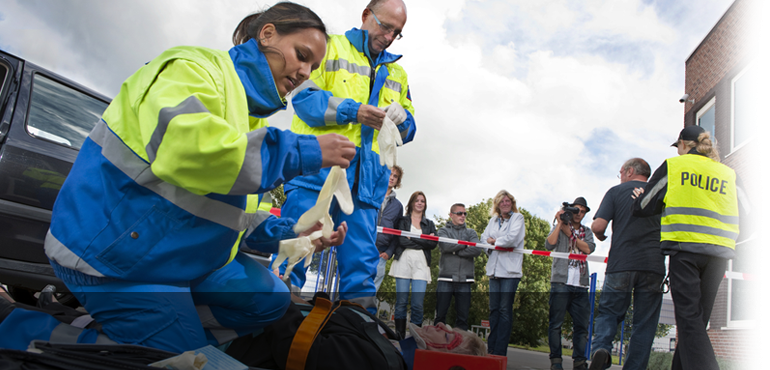| Toll Free : 1844 495 7333(injury hotline- new cases only) | |
| Text a Personal Injury Lawyer 24/7 and get instant help.TM (416 931 5015) | |
| Head Office : 905 495 7333 |
Rules on wills and probates in Canada
December 22, 2020A will is written to ensure that any assets an individual has are distributed in accordance with his or her preference once he or she dies. When you document the last wishes, it is important to seek professional assistance from an experienced and licensed legal professional. Our wills and estate lawyers Brampton, can prove very helpful in such a case.
Our lawyers are knowledgeable and experienced in different aspects and laws that govern estate planning and will. It is important to get guidance to ensure that you are aware of all the available options. This ensures your loved ones are catered for, even in your absence.
Succession rules
Restrictions and rules govern the succession and disposition of assets or property of an individual. The rules vary from one jurisdiction to the next.
The property of an individual is usually vested in the personal representatives of that individual after they die. There are cases where individuals create a will and go a step further to appoint their executor. The executor acts as a personal representative. The property disposition is guided by the terms specified within the will.
In case a person dies but does not leave a will. Then the estate administrator becomes the personal representative. The courts appoint this representative. The disposition, on the other hand, is governed by the territorial and provincial intestacy rules.
In the civil laws of Québec, a deceased person’s property administrator is referred to as a liquidator. The terms apply whether the person died intestate or testate. It is up to the liquidator to liquidate succession.
When an individual has the requisite mental capacity, they can freely dispose of the property as per the will. When adequate provisions are not made for dependents, they can claim support.
Some properties do not vest in the personal representative once they die. When an asset allows beneficially designation, such as registered savings pension plans and life insurance, it will directly pass to the beneficiary.
Intestacy
When a person does not leave a valid will or leaves a will without disposing of the whole estate, the estate’s governing is done per the provincial statute. Generally, the estate gets divided among issues and spouses of the deceased. It can also be distributed to the next of kin, who is closest if there is no issue or spouse.
Restrictions and rules governing wills
Our Brampton wills and estate lawyers can offer guidance of the rules and restrictions that govern wills. The formal will’s validity relates to any movable property and is governed by the testator’s domicile during the creation of the will. The immovable property location usually governs the formal validity of the will relating to immovable property.
The common law in some jurisdictions in Canada has been amended. The testator’s domicile or location where the will is made, nationality, or habitual residence can govern the will’s formal validity relating to the immovable and moveable property.
Formalities
Will needs to be presented in writing. They should have the testator’s sign and have to be executed before two witnesses. The two need to be present together. The only exception to this is the case of holograph will. This is a will that is done in the handwriting of the testator. In most territories and provinces, the holograph is valid. The testator has to be in the right mental capacity for such a will to hold water. He or she must know everything contained in the will and must approve.
Wills should not be executed because of undue influence. A will can also be notarial. This means that a notary must be present during the signing. A witness must also be available.
Wills are not available publicly up to the time they become probated. After it is probated, the will forms part of public records unless sealed off by the courts.
Establishment of validity based on jurisdiction
Our Brampton wills and estate lawyer understand how important it is to establish validity. We understand the applicable Canadian laws and can assist in different aspects of the law in Brampton. A will has to reach all the requirements that make it valid within the applicable Canadian jurisdiction. When this is the case, it means probating confirms its validity. There is a judicial process called probate, where the original copy of the will is submitted to the courts by an executor. Notaries may probate a will if no one is challenging it.
Requirements vary from one province to the next, and that is why you should contact us for help in such a case. The individual propounding the said will has to submit an application within a prescribed form and notify anyone interested in the estate about such an application. When minors are involved, or persons who happen to be incapacitated mentally, the government agency involved should be notified. This could be a trustee, a public guardian, or a children’s lawyer.
Probate is usually granted as per the written application, and no formal hearing is required. However, a hearing may be needed when probate is sought when the will is destroyed, lost, or the original is not available.
Conclusion
Losing a loved one is never an easy thing, especially for loved ones and dependents. When such times hit, people who have some interest in the deceased estate can start acting irrational and cause breakdowns and conflicts, especially when some feel like they are being hoodwinked.
The deceased may leave a will that the family does not agree with, or someone may feel like they have been excluded even though they are rightfully entitled. This is what causes great conflict between beneficiaries.
There are also instances when a person dies without a will, and more conflict ensues.
Contacting our wills and estate lawyer in Brampton means having peace of mind during difficult times. We can help you create a valid will and guide you through the process. We can also help in the execution of the will following all the guidelines set out in law. In case no will was left, or one wants to challenge the will, we offer guidance and follow all legal procedures to ensure that justice is served and the law is observed. Contact our wills and estate lawyer in Brampton and get started.
Rules on wills and probates in Canada
December 22, 2020A will is written to ensure that any assets an individual has are distributed in accordance with his or her preference once he or she dies. When you document the last wishes, it is important to seek professional assistance from an experienced and licensed legal professional. Our wills and estate lawyers Brampton, can prove very helpful in such a case.
Our lawyers are knowledgeable and experienced in different aspects and laws that govern estate planning and will. It is important to get guidance to ensure that you are aware of all the available options. This ensures your loved ones are catered for, even in your absence.
Succession rules
Restrictions and rules govern the succession and disposition of assets or property of an individual. The rules vary from one jurisdiction to the next.
The property of an individual is usually vested in the personal representatives of that individual after they die. There are cases where individuals create a will and go a step further to appoint their executor. The executor acts as a personal representative. The property disposition is guided by the terms specified within the will.
In case a person dies but does not leave a will. Then the estate administrator becomes the personal representative. The courts appoint this representative. The disposition, on the other hand, is governed by the territorial and provincial intestacy rules.
In the civil laws of Québec, a deceased person’s property administrator is referred to as a liquidator. The terms apply whether the person died intestate or testate. It is up to the liquidator to liquidate succession.
When an individual has the requisite mental capacity, they can freely dispose of the property as per the will. When adequate provisions are not made for dependents, they can claim support.
Some properties do not vest in the personal representative once they die. When an asset allows beneficially designation, such as registered savings pension plans and life insurance, it will directly pass to the beneficiary.
Intestacy
When a person does not leave a valid will or leaves a will without disposing of the whole estate, the estate’s governing is done per the provincial statute. Generally, the estate gets divided among issues and spouses of the deceased. It can also be distributed to the next of kin, who is closest if there is no issue or spouse.
Restrictions and rules governing wills
Our Brampton wills and estate lawyers can offer guidance of the rules and restrictions that govern wills. The formal will’s validity relates to any movable property and is governed by the testator’s domicile during the creation of the will. The immovable property location usually governs the formal validity of the will relating to immovable property.
The common law in some jurisdictions in Canada has been amended. The testator’s domicile or location where the will is made, nationality, or habitual residence can govern the will’s formal validity relating to the immovable and moveable property.
Formalities
Will needs to be presented in writing. They should have the testator’s sign and have to be executed before two witnesses. The two need to be present together. The only exception to this is the case of holograph will. This is a will that is done in the handwriting of the testator. In most territories and provinces, the holograph is valid. The testator has to be in the right mental capacity for such a will to hold water. He or she must know everything contained in the will and must approve.
Wills should not be executed because of undue influence. A will can also be notarial. This means that a notary must be present during the signing. A witness must also be available.
Wills are not available publicly up to the time they become probated. After it is probated, the will forms part of public records unless sealed off by the courts.
Establishment of validity based on jurisdiction
Our Brampton wills and estate lawyer understand how important it is to establish validity. We understand the applicable Canadian laws and can assist in different aspects of the law in Brampton. A will has to reach all the requirements that make it valid within the applicable Canadian jurisdiction. When this is the case, it means probating confirms its validity. There is a judicial process called probate, where the original copy of the will is submitted to the courts by an executor. Notaries may probate a will if no one is challenging it.
Requirements vary from one province to the next, and that is why you should contact us for help in such a case. The individual propounding the said will has to submit an application within a prescribed form and notify anyone interested in the estate about such an application. When minors are involved, or persons who happen to be incapacitated mentally, the government agency involved should be notified. This could be a trustee, a public guardian, or a children’s lawyer.
Probate is usually granted as per the written application, and no formal hearing is required. However, a hearing may be needed when probate is sought when the will is destroyed, lost, or the original is not available.
Conclusion
Losing a loved one is never an easy thing, especially for loved ones and dependents. When such times hit, people who have some interest in the deceased estate can start acting irrational and cause breakdowns and conflicts, especially when some feel like they are being hoodwinked.
The deceased may leave a will that the family does not agree with, or someone may feel like they have been excluded even though they are rightfully entitled. This is what causes great conflict between beneficiaries.
There are also instances when a person dies without a will, and more conflict ensues.
Contacting our wills and estate lawyer in Brampton means having peace of mind during difficult times. We can help you create a valid will and guide you through the process. We can also help in the execution of the will following all the guidelines set out in law. In case no will was left, or one wants to challenge the will, we offer guidance and follow all legal procedures to ensure that justice is served and the law is observed. Contact our wills and estate lawyer in Brampton and get started.








